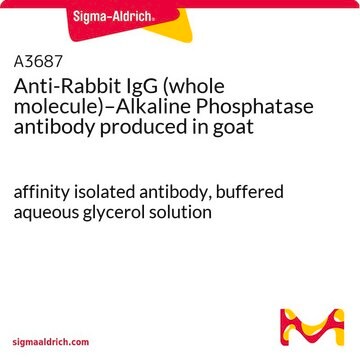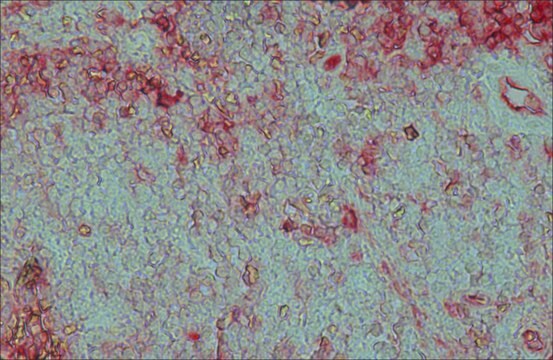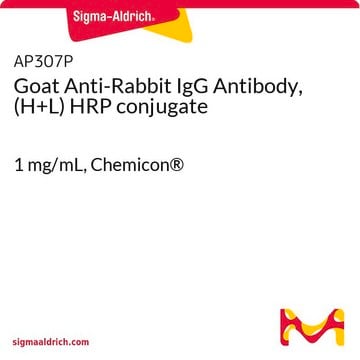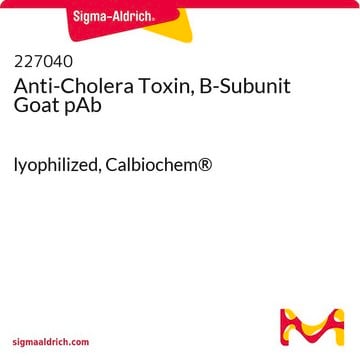A7650
Anti-Goat IgG (whole molecule)–Alkaline Phosphatase antibody produced in rabbit
affinity isolated antibody, buffered aqueous solution
Sinónimos:
Rabbit Anti-Goat IgG (whole molecule)–AP
About This Item
Productos recomendados
biological source
rabbit
Quality Level
conjugate
alkaline phosphatase conjugate
antibody form
affinity isolated antibody
antibody product type
secondary antibodies
clone
polyclonal
form
buffered aqueous solution
technique(s)
direct ELISA: 1:7,000
shipped in
wet ice
storage temp.
2-8°C
target post-translational modification
unmodified
¿Está buscando productos similares? Visita Guía de comparación de productos
General description
The suitability of any secondary antibody to a specific immunodetection application is dependent upon its signal development system configuration. Signal development systems are based upon the chemical conjugation of a signal mediator to the secondary antibody. Major secondary antibody signal systems are color (chromogenic), chemiluminescence or fluorescence based and involve the use of enzymes or high affinity binary systems such as biotin:avidin.
Specificity
Immunogen
Application
Biochem/physiol Actions
Physical form
Storage and Stability
Disclaimer
¿No encuentra el producto adecuado?
Pruebe nuestro Herramienta de selección de productos.
Storage Class
10 - Combustible liquids
wgk_germany
WGK 3
flash_point_f
Not applicable
flash_point_c
Not applicable
Certificados de análisis (COA)
Busque Certificados de análisis (COA) introduciendo el número de lote del producto. Los números de lote se encuentran en la etiqueta del producto después de las palabras «Lot» o «Batch»
¿Ya tiene este producto?
Encuentre la documentación para los productos que ha comprado recientemente en la Biblioteca de documentos.
Nuestro equipo de científicos tiene experiencia en todas las áreas de investigación: Ciencias de la vida, Ciencia de los materiales, Síntesis química, Cromatografía, Analítica y muchas otras.
Póngase en contacto con el Servicio técnico








